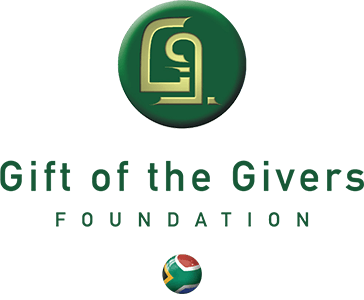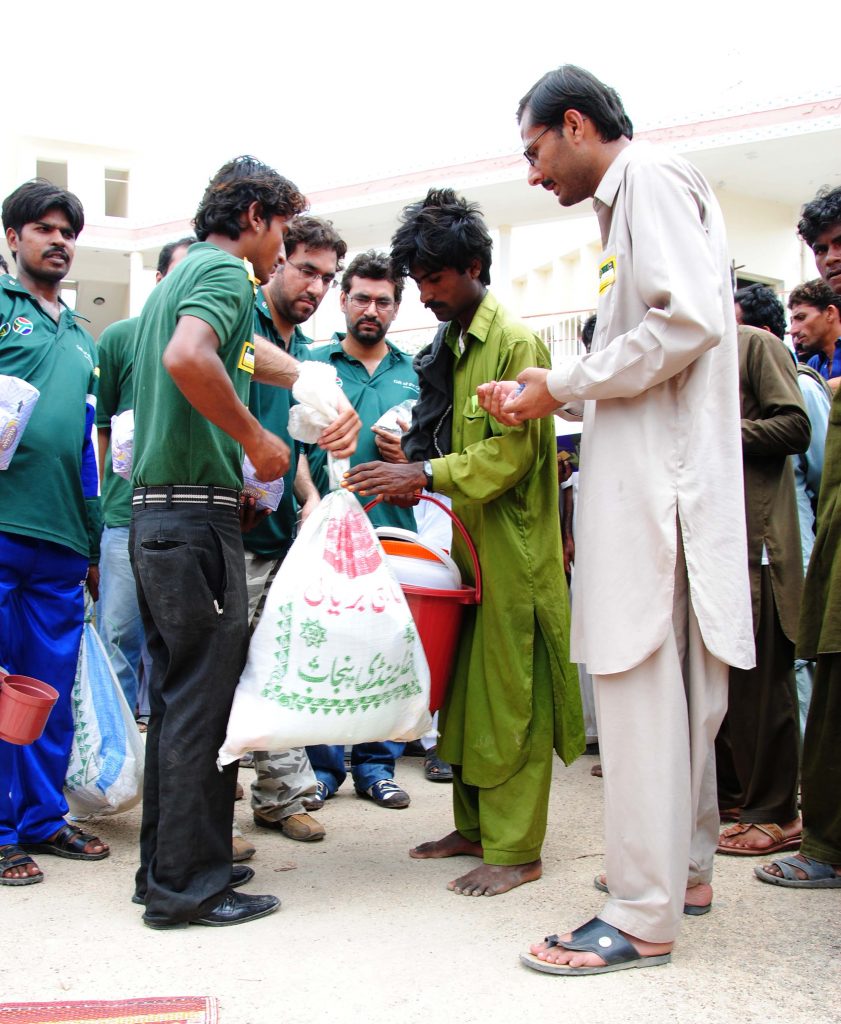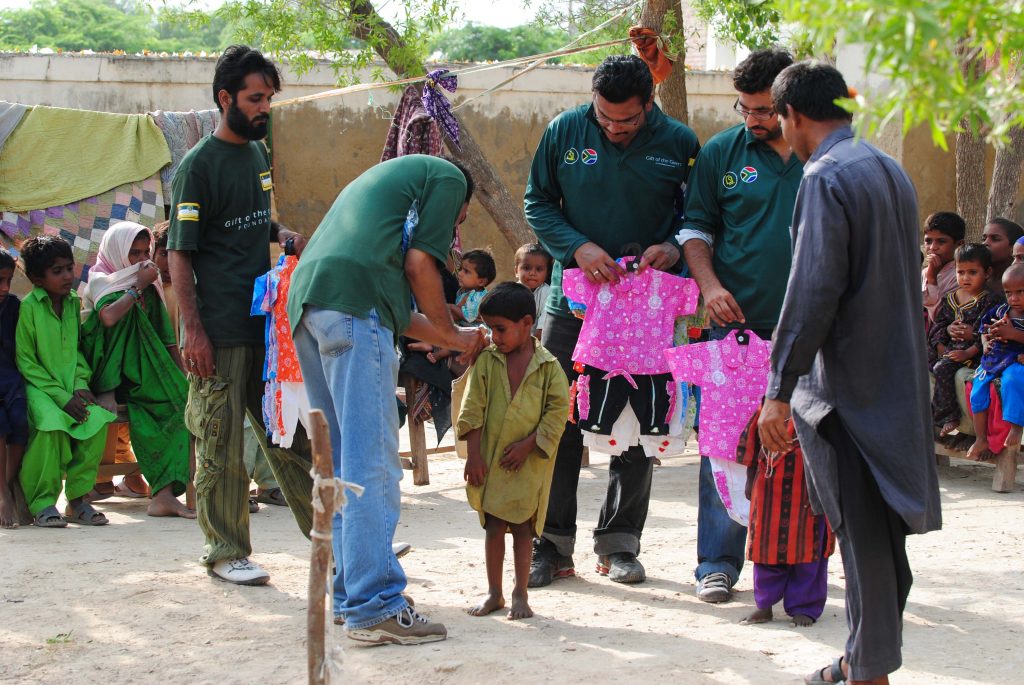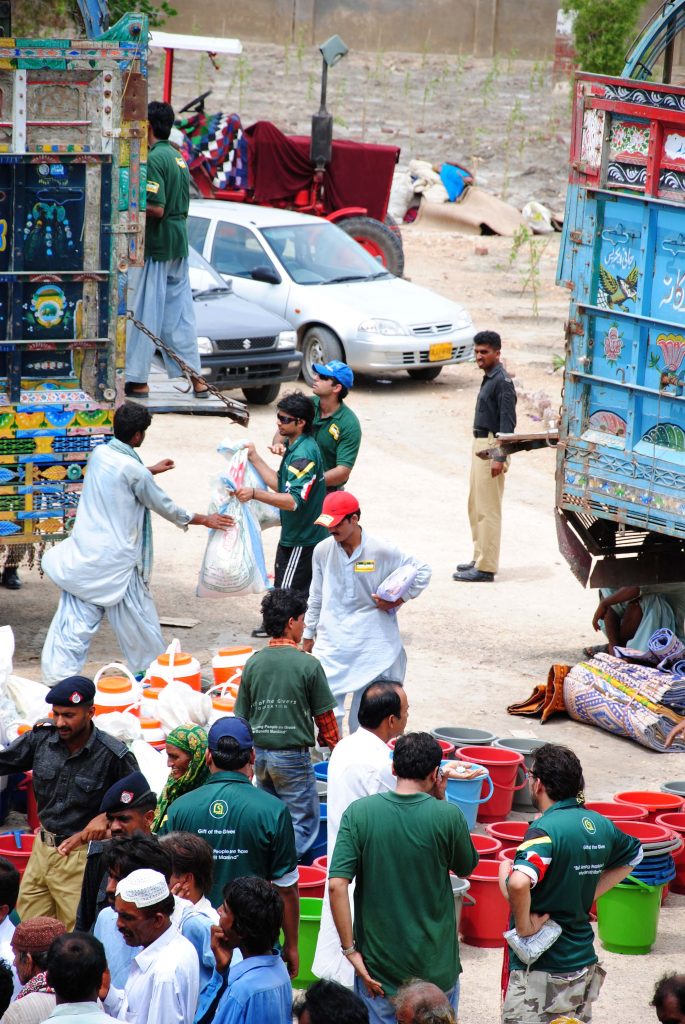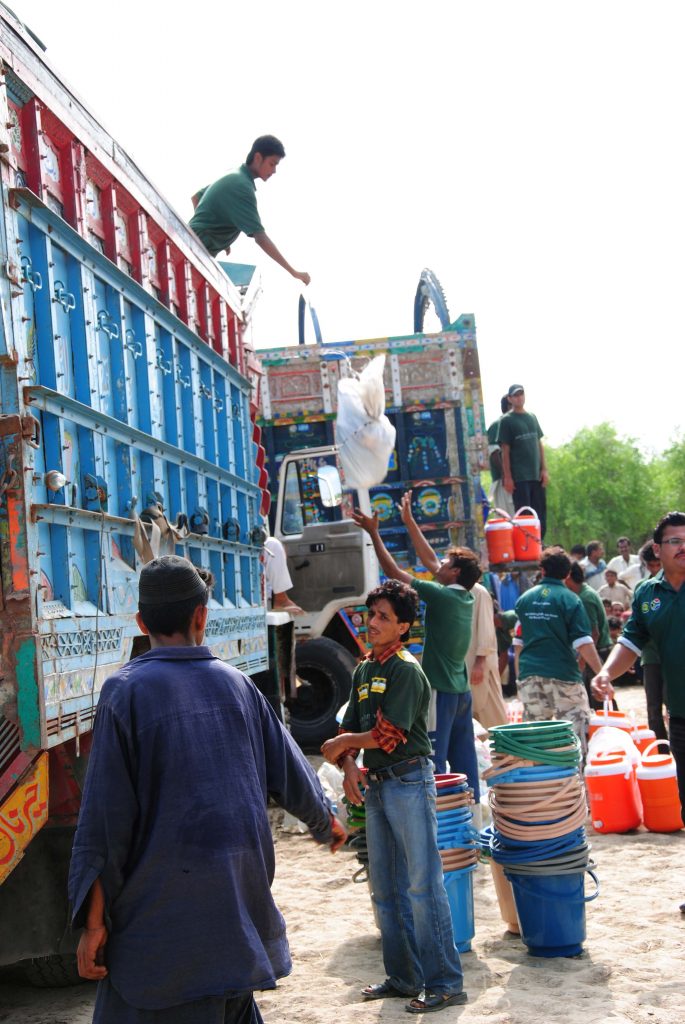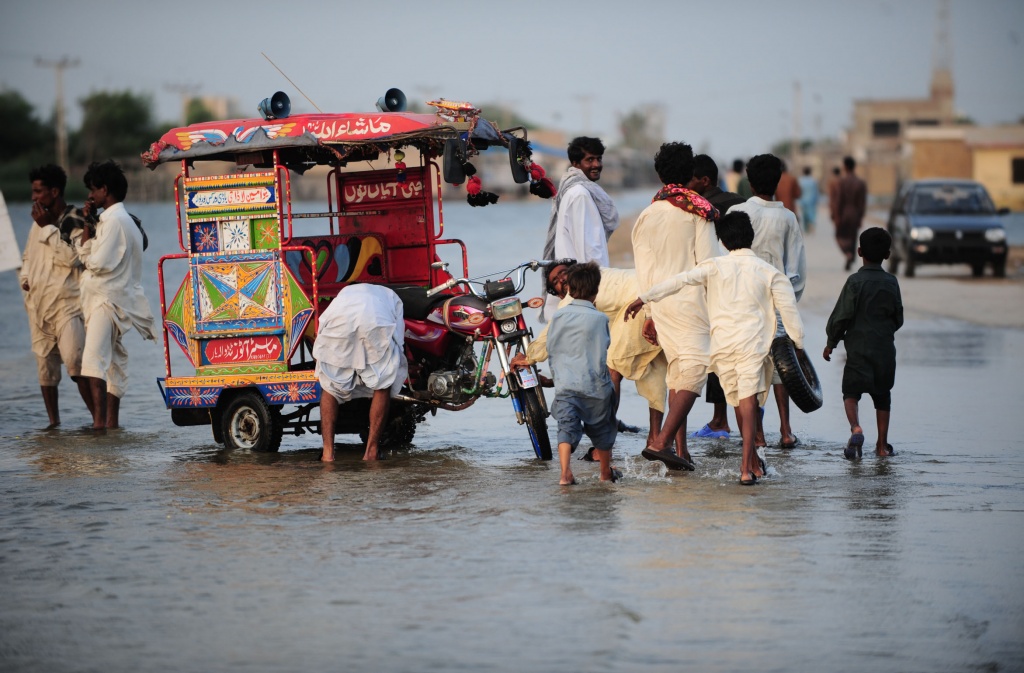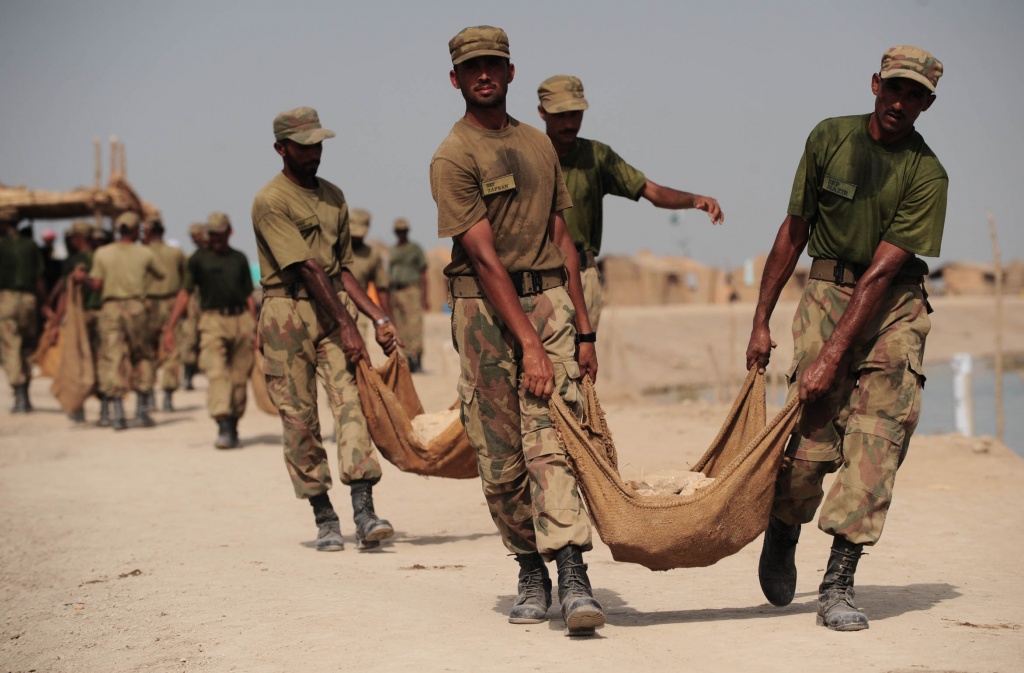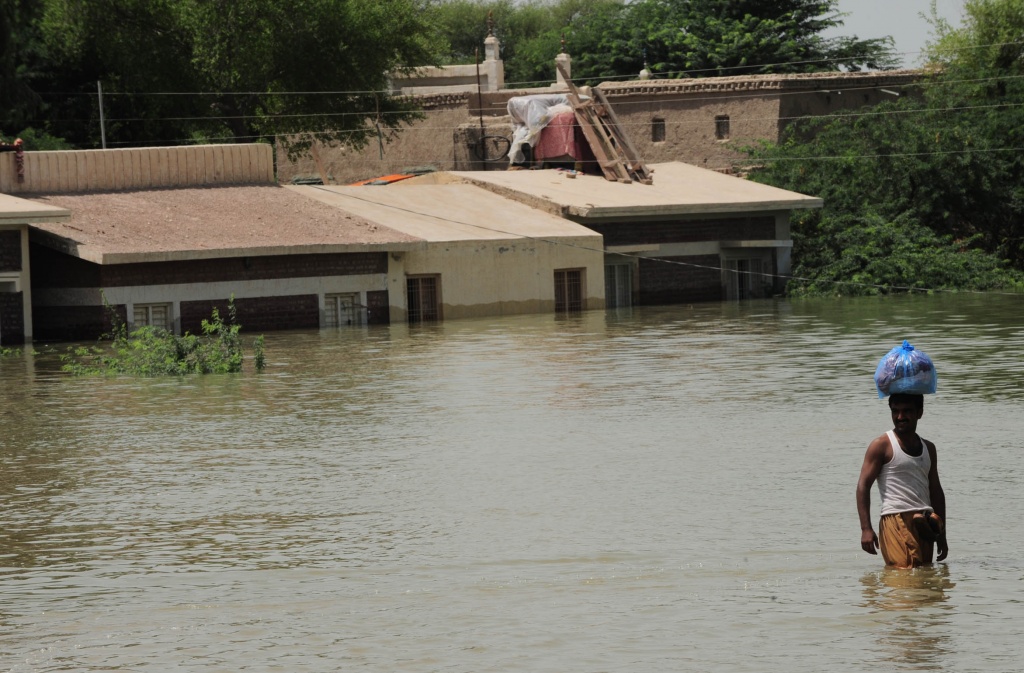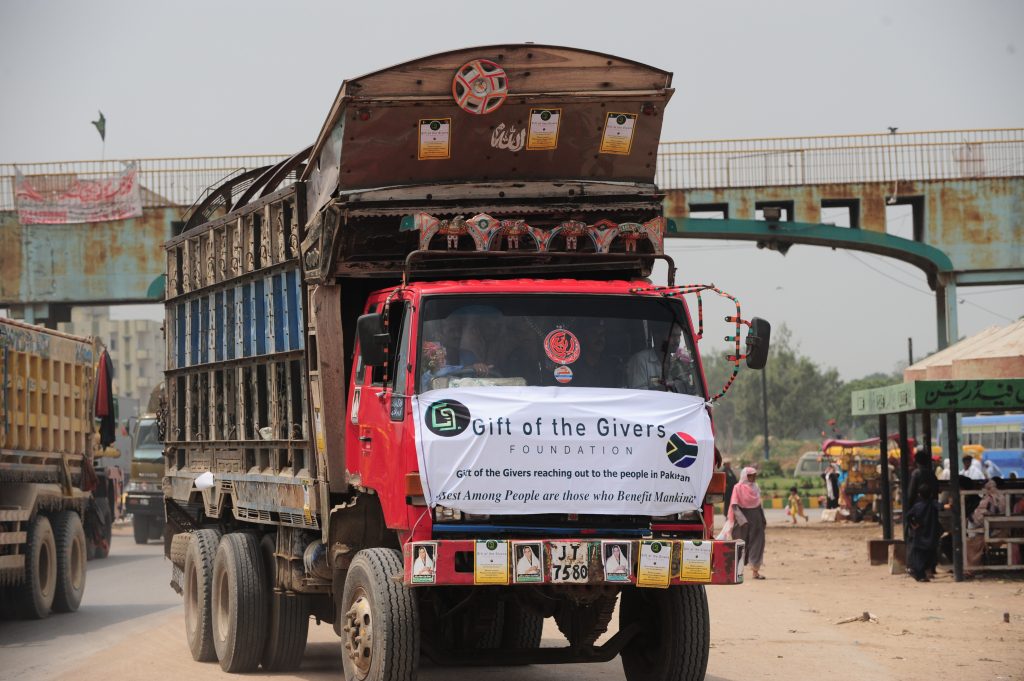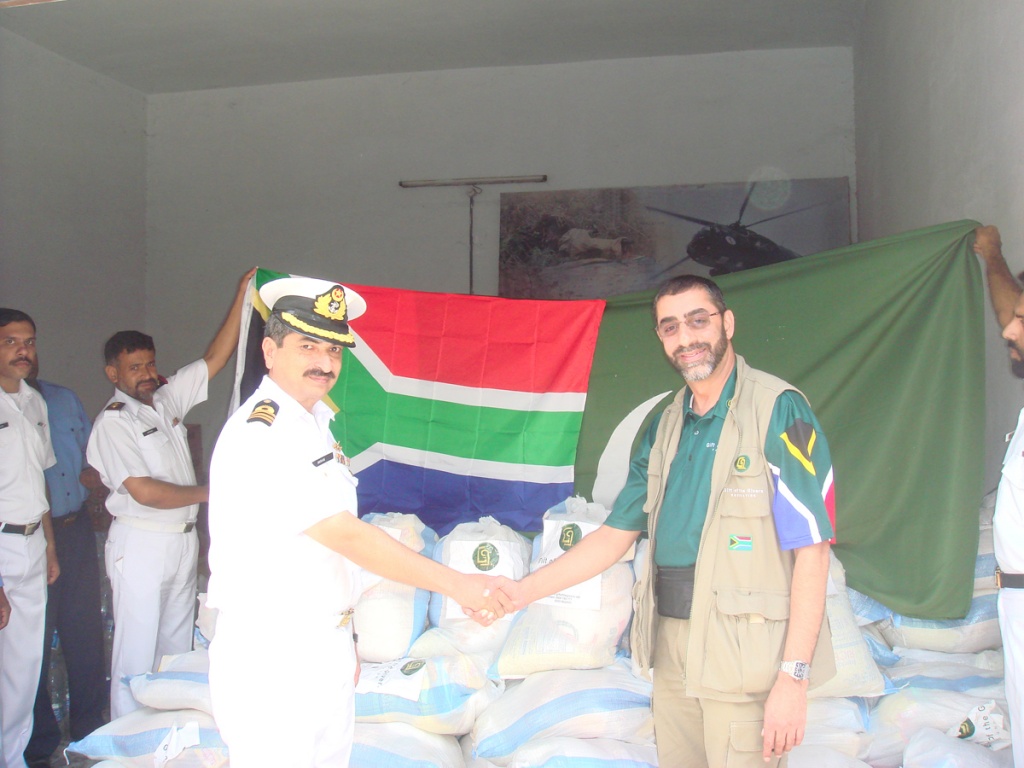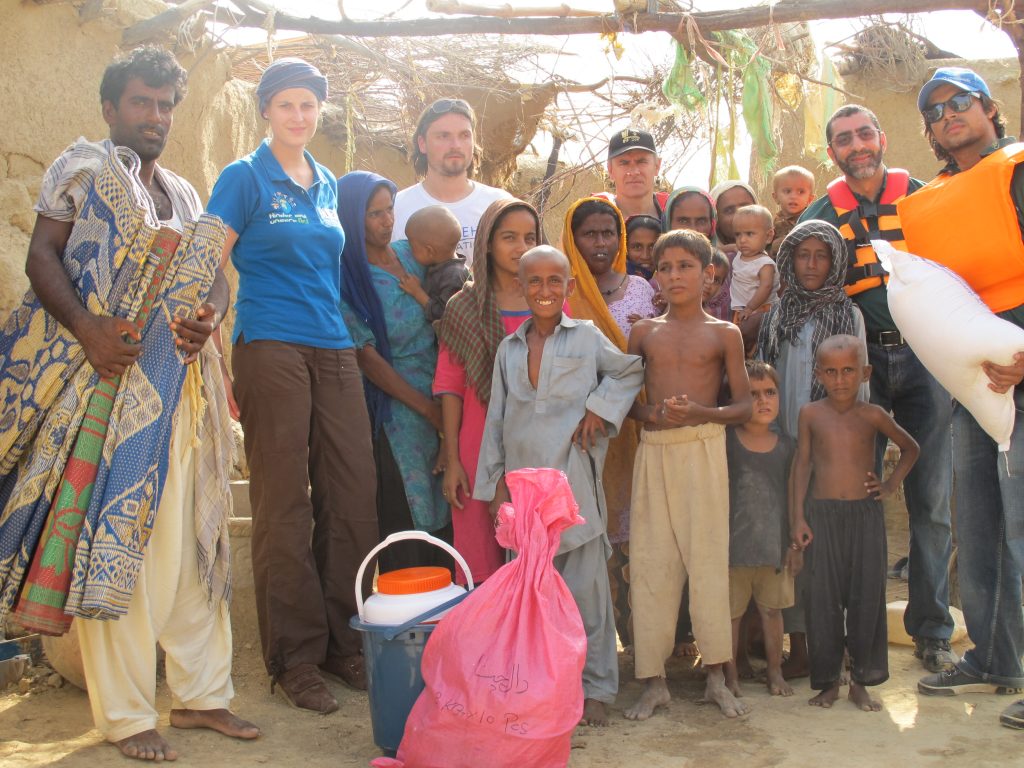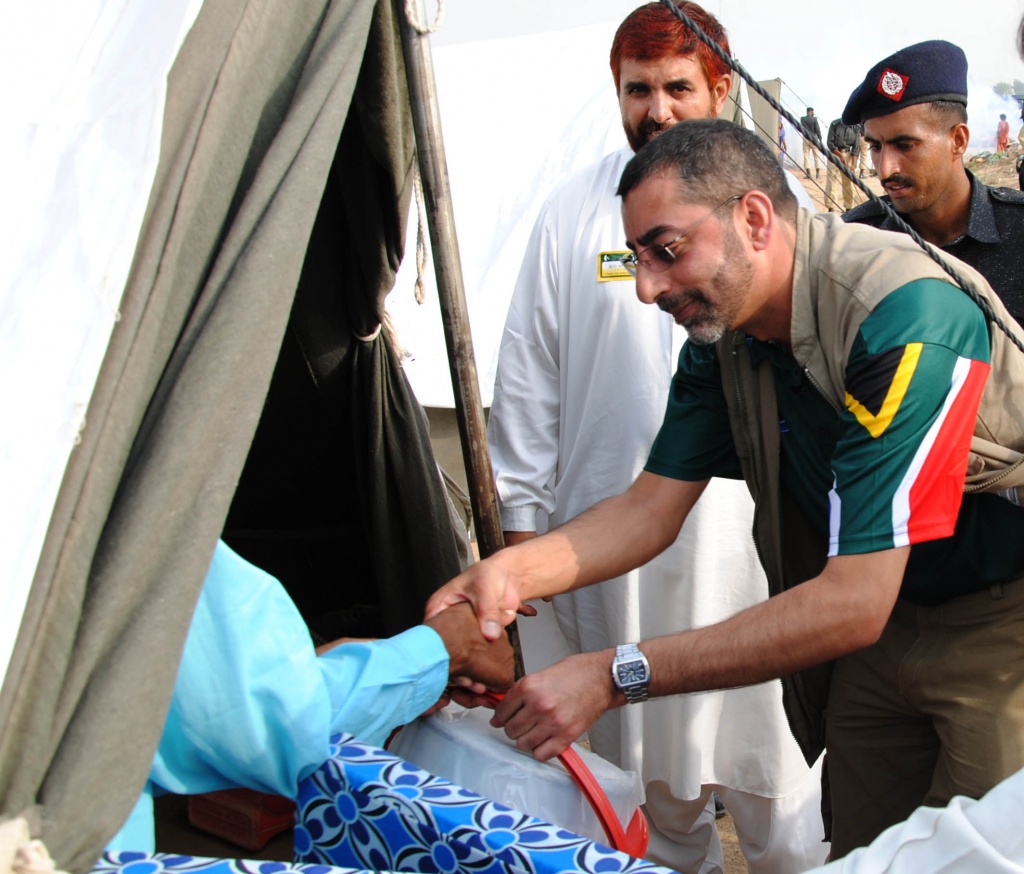Flood 2010
On 22 July 2010, a downpour of monsoon rains led to simultaneous flash floods of the Indus River, Pakhtunkhwa and the southern regions of Punjab, Sindh and Balochistan. Approximately 20 million people were affected as they were left vulnerable to malnutrition and water-borne diseases, with fatalities ranging between 1 200 and 2 200 individuals.
The documentation states that 14 million people were displaced due to loss of homes, 2.2 million hectares of crops were destroyed and more than 10 000 schools and 500 clinics/hospitals were either damaged or obliterated.
The Pakistani government estimated that the economic losses incurred, totalled $43 billion. By October 2010, the water levels of the Indus River had stabilised, however, large floodwater lakes lingered until the early months of 2011.
Gift of the Givers Response:
Reactivating networks established through our intervention at the time of Pakistan's 2005 earthquake disaster, we were able to quickly respond to 2010 flooding in the country.
We were quickly able to dispatch 5 000 especially prepared 'food packs', each comprising food items normally consumed by Pakistani people, bottled water and cooking utensils. This was soon followed by our provision of 1 million water purification sachets, capable of purifying some 10 million litres of infected water. A huge consignment of a ready-to-eat high-energy protein supplement, innovated by Gift of the Givers, which is highly effective and used most successfully in many of our disaster response missions.
We were also requested to deliver medical supplies to affected areas of the country in a proactive move, so as to be able to actively begin treating cases of Cholera, Typhoid and Malaria. We sourced such medication locally in Pakistan and delivered them to the relevant authorities for use as and when required.
Given that many areas became inaccessible by road, our teams on the ground in flood-stricken areas received vital air support from the Pakistani Military, whilst we also hired our own boats to deliver aid to cut-off areas. We provided vital feeding schemes for starving refugees and also undertook the distribution of items of new clothing for the thousands of men, women and children who lost everything to the rising floodwaters.
